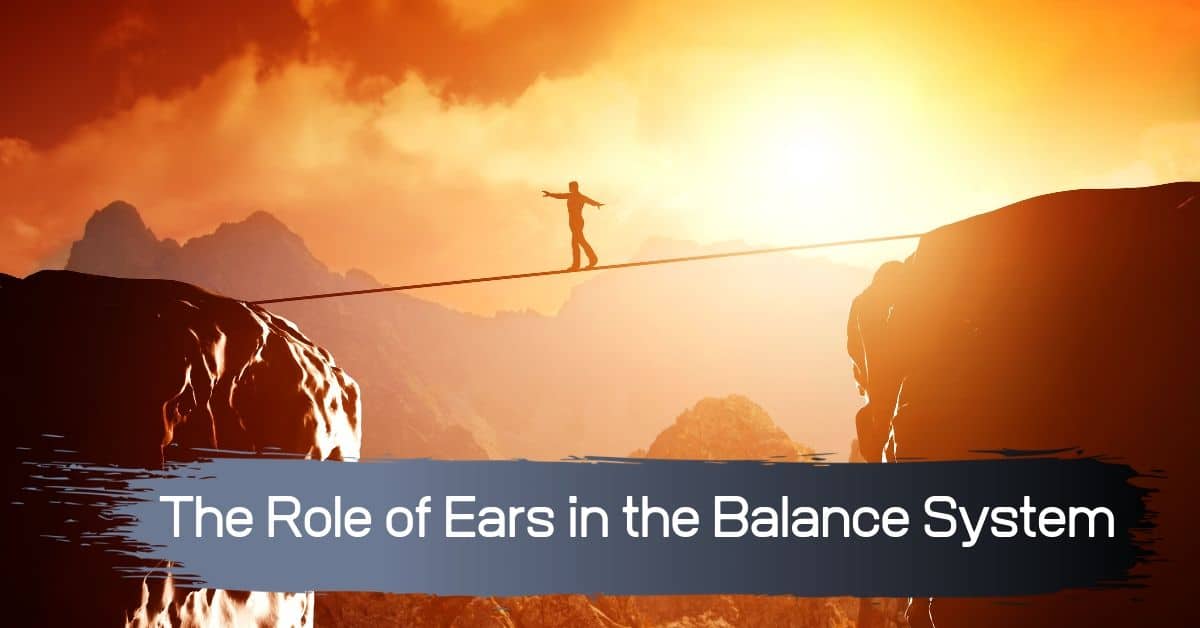Are you living with hearing loss? Do you find yourself straining to hear, or struggle to follow conversations? Perhaps you’ve recently notices problems with your balance that have you concerned for your overall health and wellbeing. Not only do your ears help you hear, they’re also responsible for your balance, and if you have hearing loss, you might discover that you’re not very stable on your feet.
The Science Behind Balancing
Most people never think about balance. We walk, run, drive, play sports, and dance without ever thinking about it. It’s only when you start to feel unsteady on your feet that you begin to consider your balance. How does the balance system work? The body is always sensing its position, and the relative distance to the ground and other objects, and the brain takes this information to adjust muscles and joints, and keep you stable on your feet. The body senses all of this through your inner ears, your eyes, and your joints and muscles, which all send information about balance to your brain.
Vestibular System
In the inner ear is the vestibular system, and this area collects information about the position of the head. The vestibular system is composed of three canals and two pockets, filled with fluid, that work together to provide information about balance. As the head moves and tilts, the fluid in the canals move, allowing your brain to detect spatial orientation, and stay balanced. The two pockets, or otolith organs, detect movement straight up and down, as well as backwards and forwards, so your brain will have all the information it needs to stay balance and coordinate movement.
The Cerebellum
The information from the inner ear is sent to the brain’s movement control center, or cerebellum, the part of the brain at the back of the head where the brain and spine meet. Along with the signals from the vestibular system, the cerebellum gets information from the eyes and muscles, so your cerebellum has information about how your body is positioned, as well as the position of your body in relation to the environment around you. Your cerebellum uses all this information to keeps you upright and balanced, and sends signals to the body, making continuous and unconscious adjustments to your posture as you go about your day.
Hearing Loss and Balance
Since the ear plays a major role in balance, hearing loss can affect balance, and those with hearing loss are often less steady on their feet. The ear is a complex organ, and when you experience damage that causes hearing loss, the vestibular system could also be damaged, affecting your balance and coordination. Not only that, but hearing also plays a role in spatial awareness, and when you can’t hear you’re not receiving as much information about the environment around you. Living with untreated hearing loss makes you less mobile, and those with hearing loss often stay home, and don’t leave the house or the neighborhood very much. This further reduces mobility, and can lead to social isolation, stress, and even depression.
If you have hearing loss, you’re more likely to experience trips, slips, and falls. Those with hearing loss are hospitalized more often than their hearing peers, and have more doctor’s visits per year, along with higher health care costs. If you have hearing loss, you’ll have more accidents than your hearing peers, and hearing loss affects far more than your ability to follow conversations.
Treating Hearing Loss
Have you been noticing problems in your balance? Do you suffer from vertigo or dizziness? Visit us today at My Hearing Centers for a hearing assessment, and find out how treating your hearing loss could help you be more active, and feel more stable on your feet. A quality hearing device will help you hear in quiet and in noise, and allow you to enjoy conversations in crowded restaurants or on the phone. Get more connected with hearing technology, and see how hearing aids can strengthen your relationships, help you communicate, and even keep you on your feet.
Check out your hearing aid options at My Hearing Centers, and let our team of hearing health specialists recommend the best devices that will help you hear when you need it the most, keep you mobile, and protect the balance system. Call us today to book an appointment!


